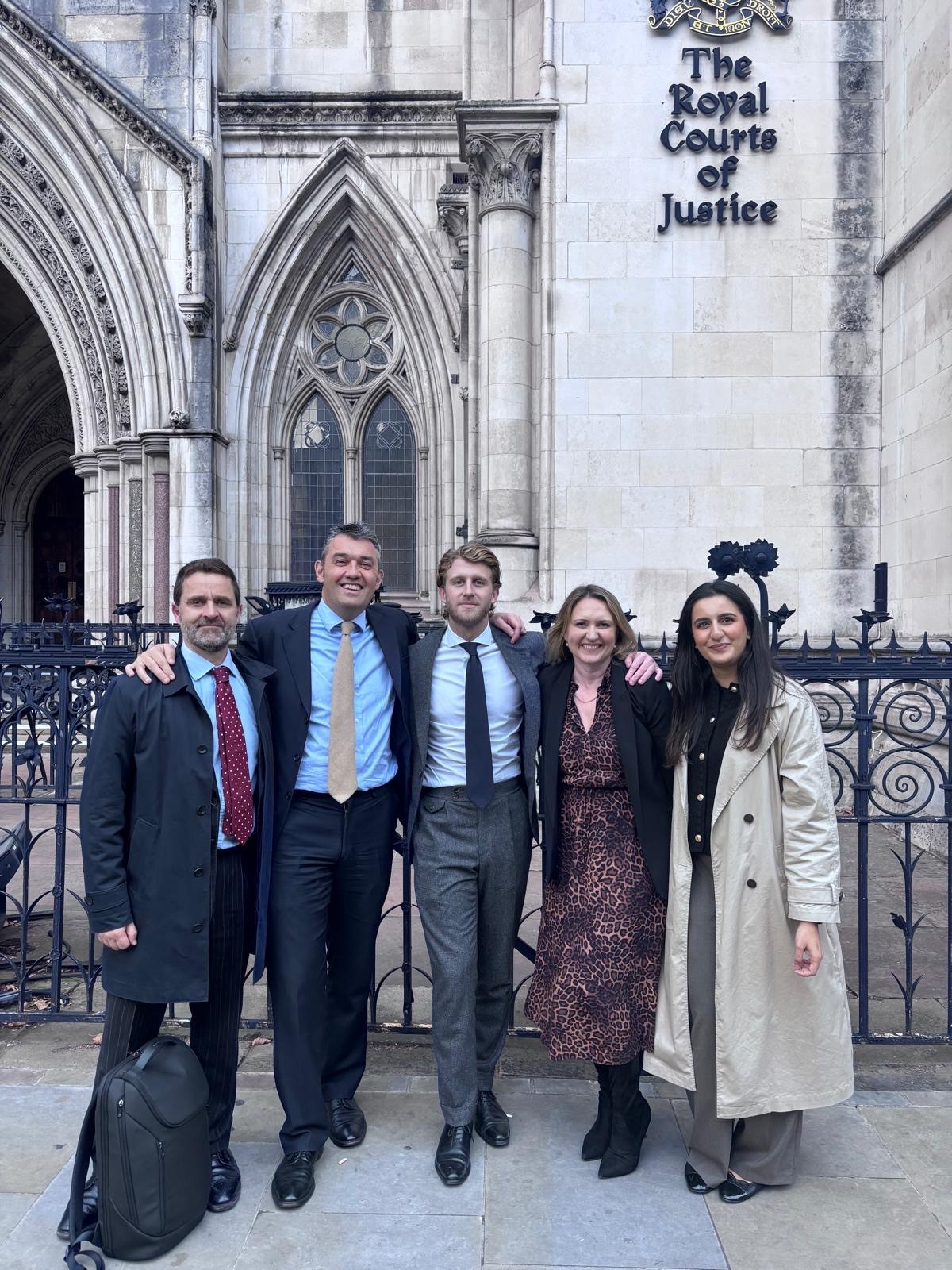MAX POTTER WINS HIGH COURT CASE AGAINST CUSTOM CLOTHING POWERHOUSE

HIGH COURT RULES AGAINST U.S. TAILORING GIANT IN LANDMARK NON-COMPETE CASE
A young British tailor has won a significant legal victory against the world’s largest custom clothing company after the High Court ruled that a 12-month non-compete clause in his contract was “unenforceable”.
The judgment, handed down by The Honourable Mr Justice Ritchie in Tom James UK Ltd v Potter [2025] EWHC 2873 (KB), found that the clause went “further than is reasonably necessary to protect the Claimant’s legitimate business interests”.
The case, heard between 15 and 21 October 2025, pitted Tom James UK Limited, the British arm of the Tennessee-headquartered tailoring giant, against Max Potter, a 27-year-old personal tailor who resigned from the firm earlier this year.
Tom James sought to enforce a 12-month non-compete clause preventing Potter from working anywhere in the world within the tailoring trade. The clause contained no geographical restriction and, as Justice Ritchie observed, would have prohibited Potter from working in virtually any role, “even as a delivery driver for Harrods.”
Potter, who offered to observe a 12-month non-solicitation and non-dealing agreement with his former clients, was initially served with an interim injunction in July 2025 after the company rejected his proposal. The case then proceeded to a full five-day trial in the High Court.
In his ruling, Justice Ritchie concluded that Potter had not been exposed to confidential information beyond customer relationships, which were already covered by the undertakings he had voluntarily given. Describing Potter as “a mid-ranking salesperson who had not yet peaked,” the judge said there was no justification for a blanket ban preventing him from earning a living in his field.

He criticised Tom James for applying a “one size fits all” restrictive covenant across all employees, regardless of seniority or exposure to sensitive information. In a strongly worded passage, he observed that forcing a worker to remain unemployed for a year could cause “default on his/her mortgage, loss of a house, a car, the ability to care for children and many other things,” adding that there was “no evidence that the Claimant thought about that at all.”
Justice Ritchie concluded:
“The restrictive covenant against competition in the 2022 contract goes further than is reasonably necessary to protect the Claimant’s legitimate business interests and is unenforceable. I consider that, on the evidence, the duration; the range of businesses being protected; the range of competing businesses and the roles banned were all not reasonably necessary.”
Tom James was represented in court by Alice Mayhew KC of Devereux Chambers and law firm Baker & McKenzie, while Potter was represented by John Hayes, assisted by Zahra Mahmood of Constantine Law and Julia Whyte of Lazuli Law, with Stefan Brochwicz-Lewinski of 9 Chambers, Manchester, acting as counsel.
John Hayes, Managing Partner at Constantine Law, described the case as a watershed moment: “This was a case of a big US corporate failing to impose a 12-month global non-compete in order to prevent a London worker carrying out his stock in trade.”
Potter said the ruling was a relief. “All I wanted was the opportunity to continue in the trade that I’ve found purpose and passion in. If Tom James had succeeded, it would have set a dangerous precedent whereby large American corporations can control their UK subsidiaries and British employees after they’ve left their employment. I will continue to serve customers and clients in the customised clothing sector in London and beyond.”
Hayes added that contested High Court trials of this kind are “relatively rare” and that the outcome “should be noted by all US employers with overseas workers, particularly in the UK.”
He explained: “Although Tom James has a 24-month restrictive covenant in its US contracts, a 12-month non-compete in its UK contracts was deemed an unenforceable restraint of trade. The company was utterly unable to justify it as a legitimate restriction under UK law.”
The case is expected to become a reference point for future disputes involving restrictive covenants and global employment contracts.




